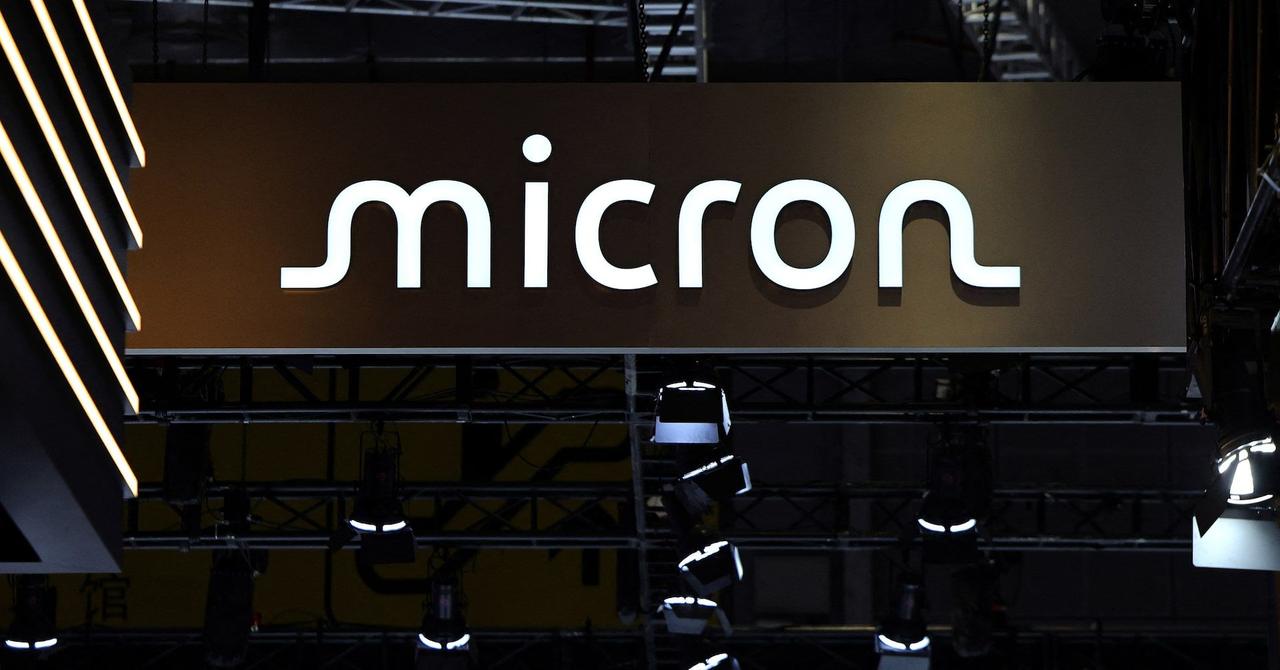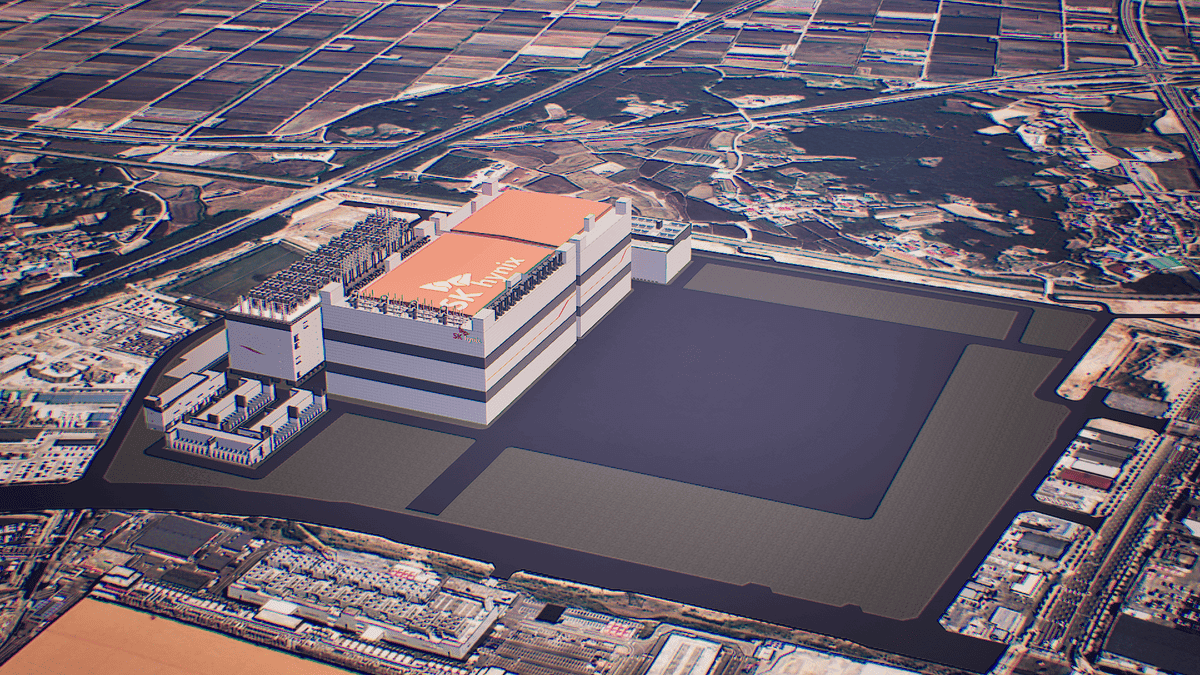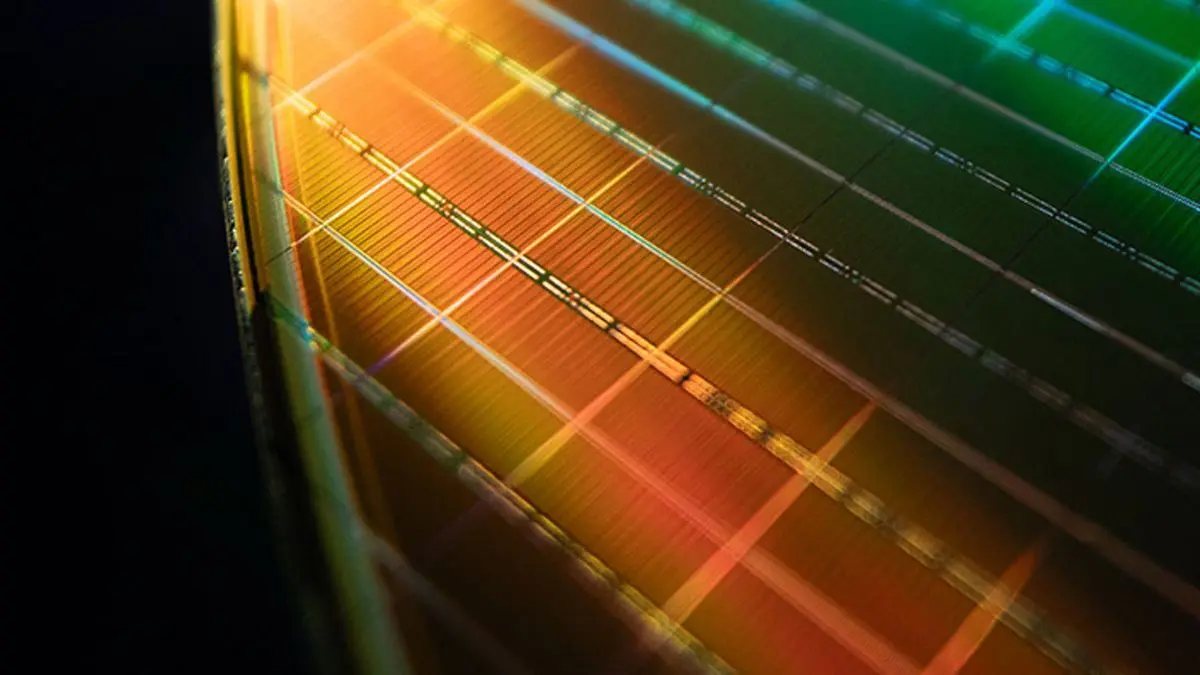Kioxia Forecasts 2.7x Growth in NAND Memory Demand by 2028, Driven by AI Boom
5 Sources
5 Sources
[1]
Kioxia Anticipates 2.7x Growth in NAND Memory Demand by 2028, Expands Production Capacity
Kioxia Corporation, a leading entity in the semiconductor sector, has projected a significant rise in demand for NAND flash memory, anticipating a 2.7-fold increase by 2028, as reported by Reuters. This growth is primarily driven by developments in artificial intelligence (AI) technologies, which require more advanced and higher-capacity memory solutions. To address this expected demand, Kioxia plans to expand its manufacturing capabilities and adopt new process technologies over the next few years. This expansion includes investments in advanced fabrication processes essential for producing higher-density memory chips needed for AI applications. To support the forecasted increase in NAND memory demand, Kioxia is enhancing its production infrastructure in Japan. A key aspect of this strategy is the expansion of the Kitakami facility in Iwate Prefecture. Construction at this site is underway with the aim of beginning production by fall 2025, following a delay of about one year. The original production schedule was postponed due to a widespread decline in memory demand affecting the entire semiconductor industry. Additionally, Kioxia is expanding the cleanroom space at its Yokkaichi plant. These improvements are intended to provide the necessary production capacity to effectively meet future market needs. Earlier this year, Kioxia resumed full-capacity production at both its Yokkaichi and Kitakami fabrication plants after reducing output by more than 30% starting in October 2022 due to decreased demand for its 3D NAND memory used in smartphones. The reduction in production was part of a broader trend of declining memory inventories, which led to weakened demand. However, in the second half of 2023, demand for 3D NAND memory began to recover as memory inventories decreased and the smartphone and PC markets gradually improved. The demand for memory chips in these devices has now stabilized, with additional growth from orders in data centers. As the need for AI servers and datacenter-class storage devices increases, Kioxia is equipped to meet this demand with its 3D NAND flash memory products and enterprise-grade solid-state drives (SSDs), which utilize proprietary controllers and firmware. Other factors that could boost demand for 3D NAND include on-device AI features, which require high-capacity, high-performance local storage. To strengthen domestic production, the Japanese government has provided up to $1.64 billion in subsidies to Kioxia and its partner, Western Digital, for expanding their facilities in Yokkaichi and Kitakami.
[2]
Japan's Kioxia sees flash memory demand almost tripling by 2028
KITAKAMI, Japan (Reuters) - Bain Capital-backed Kioxia said on Tuesday it expects demand for flash memory to increase by about 2.7 times in the five years to 2028 on the back of the boom in artificial intelligence. The chipmaker, which was hammered by a downturn in the market for memory chips, is readying a major capacity expansion at its new fab at Kitakami in Iwate prefecture, north of Tokyo. Kioxia, formerly Toshiba Memory, had planned to begin production at the fab last year but has delayed that to autumn 2025. The chipmaker has seen years of upheaval including its carve-out from scandal-hit Toshiba by the Bain-led consortium. Kioxia also makes chips at Yokkaichi in Mie prefecture in central Japan and in July said it has begun sample shipments of its latest generation of NAND flash memory. The growth of AI is driving investment in servers and the introduction of AI features is seen as having the potential to drive renewed demand for smartphones and PCs. Kioxia has space in Yokkaichi and "by having the Kitakami factory operating next autumn we should have sufficient room to respond," Tomoharu Watanabe, executive vice president at Kioxia, said following a ceremony to offer prayers for the safety of the new fab. Bain scrapped plans for an initial public offering for Kioxia in October after investors pushed it to almost halve the valuation it was seeking, Reuters has reported. Kioxia is a test case for buyout firms in Japan and is a key player as the government looks to revive its formerly world beating chip industry. In February, Japan said it would provide subsidies worth as much as $1.64 billion to Kioxia and partner Western Digital to expand capacity at Yokkaichi and Kitakami.
[3]
Japan's Kioxia Sees Flash Memory Demand Almost Tripling by 2028
KITAKAMI, Japan (Reuters) - Bain Capital-backed Kioxia said on Tuesday it expects demand for flash memory to increase by about 2.7 times in the five years to 2028 on the back of the boom in artificial intelligence. The chipmaker, which was hammered by a downturn in the market for memory chips, is readying a major capacity expansion at its new fab at Kitakami in Iwate prefecture, north of Tokyo. Kioxia, formerly Toshiba Memory, had planned to begin production at the fab last year but has delayed that to autumn 2025. The chipmaker has seen years of upheaval including its carve-out from scandal-hit Toshiba by the Bain-led consortium. Kioxia also makes chips at Yokkaichi in Mie prefecture in central Japan and in July said it has begun sample shipments of its latest generation of NAND flash memory. The growth of AI is driving investment in servers and the introduction of AI features is seen as having the potential to drive renewed demand for smartphones and PCs. Kioxia has space in Yokkaichi and "by having the Kitakami factory operating next autumn we should have sufficient room to respond," Tomoharu Watanabe, executive vice president at Kioxia, said following a ceremony to offer prayers for the safety of the new fab. Bain scrapped plans for an initial public offering for Kioxia in October after investors pushed it to almost halve the valuation it was seeking, Reuters has reported. Kioxia is a test case for buyout firms in Japan and is a key player as the government looks to revive its formerly world beating chip industry. In February, Japan said it would provide subsidies worth as much as $1.64 billion to Kioxia and partner Western Digital to expand capacity at Yokkaichi and Kitakami.
[4]
Japan's Kioxia sees flash memory demand almost tripling by 2028
KITAKAMI, Japan, Nov 5 (Reuters) - Bain Capital-backed Kioxia said on Tuesday it expects demand for flash memory to increase by about 2.7 times in the five years to 2028 on the back of the boom in artificial intelligence. The chipmaker, which was hammered by a downturn in the market for memory chips, is readying a major capacity expansion at its new fab at Kitakami in Iwate prefecture, north of Tokyo. Kioxia, formerly Toshiba Memory, had planned to begin production at the fab last year but has delayed that to autumn 2025. The chipmaker has seen years of upheaval including its carve-out from scandal-hit Toshiba by the Bain-led consortium. Kioxia also makes chips at Yokkaichi in Mie prefecture in central Japan and in July said it has begun sample shipments of its latest generation of NAND flash memory. The growth of AI is driving investment in servers and the introduction of AI features is seen as having the potential to drive renewed demand for smartphones and PCs. Kioxia has space in Yokkaichi and "by having the Kitakami factory operating next autumn we should have sufficient room to respond," Tomoharu Watanabe, executive vice president at Kioxia, said following a ceremony to offer prayers for the safety of the new fab. Bain scrapped plans for an initial public offering for Kioxia in October after investors pushed it to almost halve the valuation it was seeking, Reuters has reported. Kioxia is a test case for buyout firms in Japan and is a key player as the government looks to revive its formerly world beating chip industry. In February, Japan said it would provide subsidies worth as much as $1.64 billion to Kioxia and partner Western Digital (WDC.O), opens new tab to expand capacity at Yokkaichi and Kitakami. Reporting by Sam Nussey; Editing by Edwina Gibbs Our Standards: The Thomson Reuters Trust Principles., opens new tab
[5]
Kioxia sees flash memory demand almost tripling by 2028
Bain Capital-backed Kioxia said on Tuesday it expects demand for flash memory to increase by about 2.7 times in the five years to 2028 on the back of the boom in artificial intelligence. The chipmaker, which was hammered by a downturn in the market for memory chips, is readying a major capacity expansion at its new fab at Kitakami in Iwate prefecture, north of Tokyo. Kioxia, formerly Toshiba Memory, had planned to begin production at the fab last year but has delayed that to autumn 2025. The chipmaker has seen years of upheaval including its carve-out from scandal-hit Toshiba by the Bain-led consortium. Kioxia also makes chips at Yokkaichi in Mie prefecture in central Japan and in July said it has begun sample shipments of its latest generation of NAND flash memory. The growth of AI is driving investment in servers and the introduction of AI features is seen as having the potential to drive renewed demand for smartphones and PCs. Kioxia has space in Yokkaichi and "by having the Kitakami factory operating next autumn we should have sufficient room to respond," said Tomoharu Watanabe, executive vice president at Kioxia, following a ceremony to offer prayers for the safety of the new fab. Bain scrapped plans for an initial public offering for Kioxia in October after investors pushed it to almost halve the valuation it was seeking, Reuters has reported. Kioxia is a test case for buyout firms in Japan and is a key player as the government looks to revive its formerly world beating chip industry. In February, Japan said it would provide subsidies worth as much as $1.64 billion to Kioxia and partner Western Digital to expand capacity at Yokkaichi and Kitakami.
Share
Share
Copy Link
Kioxia, a leading semiconductor company, anticipates a significant increase in NAND flash memory demand by 2028, primarily due to advancements in AI technologies. The company is expanding its production capacity to meet this projected growth.

Kioxia's Ambitious Growth Projection
Kioxia Corporation, a major player in the semiconductor industry, has announced a bold forecast for NAND flash memory demand. The company expects demand to increase by approximately 2.7 times in the five years leading up to 2028
1
2
3
4
5
. This projection is primarily driven by the rapid growth and advancements in artificial intelligence (AI) technologies, which require more sophisticated and higher-capacity memory solutions.Expansion of Production Capacity
To meet this anticipated surge in demand, Kioxia is taking significant steps to expand its manufacturing capabilities:
-
Kitakami Facility Expansion: Construction is underway at the new fabrication plant in Kitakami, Iwate Prefecture. Originally planned to begin production last year, the facility's launch has been rescheduled to autumn 2025 due to previous market downturns
1
2
3
. -
Yokkaichi Plant Enhancement: Kioxia is also expanding the cleanroom space at its Yokkaichi plant in Mie Prefecture, further boosting its production infrastructure
1
. -
Advanced Fabrication Processes: The company plans to adopt new process technologies crucial for producing higher-density memory chips required for AI applications
1
.
Market Recovery and AI-Driven Demand
Kioxia's optimistic outlook comes after a period of market volatility:
- In October 2022, the company reduced output by more than 30% due to decreased demand for 3D NAND memory used in smartphones
1
. - The second half of 2023 saw a recovery in demand as memory inventories decreased and the smartphone and PC markets gradually improved
1
. - The growth of AI is now driving investment in servers, with the potential to renew demand for smartphones and PCs featuring AI capabilities
2
3
4
.
Related Stories
Government Support and Industry Significance
Kioxia's expansion plans are receiving substantial government backing:
- The Japanese government has pledged subsidies of up to $1.64 billion to Kioxia and its partner Western Digital for expanding facilities in Yokkaichi and Kitakami
1
2
3
4
. - This support underscores Kioxia's importance in Japan's efforts to revitalize its semiconductor industry
4
5
.
Corporate Developments and Challenges
Kioxia has faced several corporate challenges:
- The company, formerly known as Toshiba Memory, was carved out from scandal-hit Toshiba by a Bain Capital-led consortium
2
3
4
. - Plans for an initial public offering were scrapped in October after investors pushed for a significantly lower valuation
2
3
4
.
Despite these hurdles, Kioxia remains a key player in the global semiconductor industry, with its latest projections and expansion plans signaling confidence in the growing demand for NAND flash memory, particularly in the AI sector.
References
Summarized by
Navi
[2]
[5]
Related Stories
Kioxia names new CEO to capture AI storage growth while rivals chase high-bandwidth memory
30 Jan 2026•Business and Economy

Micron commits $24 billion to Singapore plant as AI demand strains global memory supply
27 Jan 2026•Business and Economy

SK Hynix commits $13 billion to world's largest HBM plant as AI demand creates historic shortage
13 Jan 2026•Business and Economy

Recent Highlights
1
Pentagon threatens Anthropic with Defense Production Act over AI military use restrictions
Policy and Regulation

2
Google Gemini 3.1 Pro doubles reasoning score, beats rivals in key AI benchmarks
Technology

3
Anthropic accuses Chinese AI labs of stealing Claude through 24,000 fake accounts
Policy and Regulation





